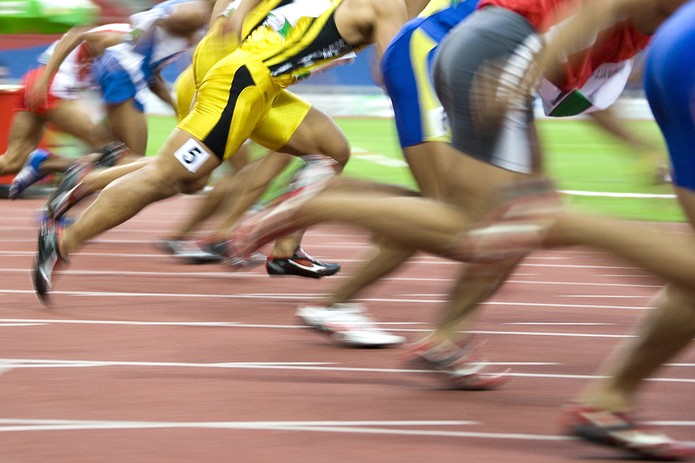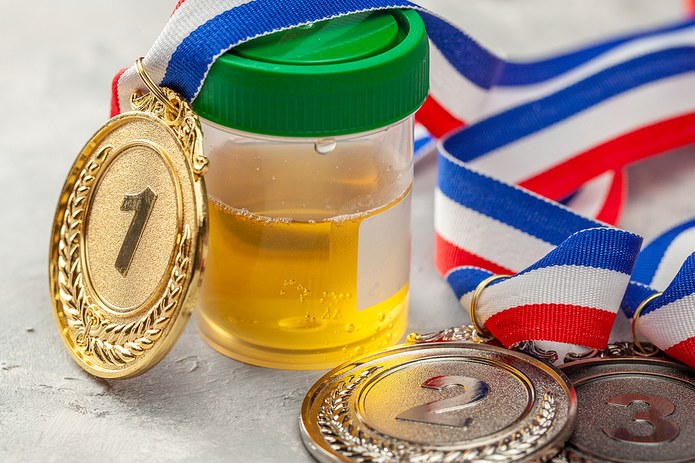 Imagine an Olympic Games – but one where the athletes don’t have to pass a drugs test in order to compete.
Imagine an Olympic Games – but one where the athletes don’t have to pass a drugs test in order to compete.
Tha’s the idea behind the Enhanced Games – a rather radical event where cheats really do prosper.
Aron D’Souza, a lawyer and ‘entrepreneur’, has revealed plans to hold a version of the Olympics where the athletes are allowed, nay, encouraged to dope in a bid to achieve unrivalled feats of sporting excellence.
Some have questioned D’Souza’s motives – he owns a firm of publicists after all, but he claims his desire to create the Enhanced Games is not for financial gain.
“If I wanted to simply make money, I would continue to do that,” he has said.
The problem facing D’Souza is that he will need to raise the necessary capital from external investment to run his event, and you wonder if any big companies or high worth individuals will want to get involved in a project where drug taking is welcome. Not even the Saudis would want to sportswash via the Enhanced Games….
Perhaps surprisingly, some former Olympic athletes have lent their support to D’Souza; less surprisingly, the most famous of them – gold medal winning swimmer Ronald Schoeman – served a ban for doping.
If it does get off the ground, the Enhanced Games would be held annually across five disciplines: track and field, swimming, gymnastics, weightlifting and the rather troubling prospect of steroid-powered fighters competing in combat sports.
Does the Enhanced Games Have Any Rules?

“My body, my choice. Your body, your choice. Individuals who are adults, with free and informed consent, should be able to do to their bodies what they wish.”
That will be the mantra behind the Enhanced Games, which aims to make doping in sport safer, more scientific and, in a sense, controlled too.
D’Souza has labelled modern athletics as ‘anti scientific’, claiming that organisations like Wada, the drug testing authority, have adopted cat-and-mouse tactics in a bid to catch out athletes with ‘oppressive’ and ‘invasive’ testing strategies.
And according to the Enhanced Games propaganda, ‘enhanced athletes embrace the human belief in scientific development, ignoring the anti-science stigma’.
The traditional Olympic Games have outlawed doping in any form because performance-enhanced athletes are able to build more powerful physiques, with muscle mass retention allowing them to run and swim faster, throw further and jump higher. They can also recover more quickly too, adding their training and development.
That is exactly what the Enhanced Games wants to see.
“The IOC (International Olympic Committee) has effectively been a one-party state running the world of sport for 100 years,” D’Souza has said.
“And now the opposition party is here. We are ready for a fight. I know they are going to play dirty. I know they are going to threaten us. But ultimately we know that we are morally correct.”
Whether he can convince the rest of the sporting world of that remains to be seen….
Which Olympic Gold Medallists Have Been Stripped of Their Medal?

If the Enhanced Games had been around for the past 50 years, a number of Olympians would have been fine – as it was, they were stripped of their medals after testing positive for some kind of steroid or performance-enhancing drug.
One of the most famous – or infamous – dopers is Ben Johnson, the Canadian who won the Olympic gold medal in the 100m back in 1988 while breaking the world record. He was later stripped of his medal after the banned substance stanozolol was found in his urine sample. That 100m final in Seoul saw six of the eight sprinters ultimately punished in some way for doping.
Marion Jones announced herself as one of the greatest women’s sprinters on the planet at the Sydney Games in 2000, winning three gold medals in the individual and relay sprints as well as two bronze medals in the long jump and 4x400m discipline. After being stripped of her haul, Jones initially professed her innocence until making an emotional confession seven years later.
Jones was one of five athletes who were stripped of gold in 2000 – Izabela Dragneva (weightlifting), Alexander Leipold (wrestling), Andreea Raducan (gymnastics) and Antonio Pettigrew and Jerome Young (both 4x100m relay) the others found guilty of cheating.
Many of those that have been stripped of gold medals are from the weightlifting category, with seven men and six women declared drug cheats since 1976 and their wins stricken from the record.
What is perhaps most troubling – and perhaps most appealing to D’Souza – is that the problem doesn’t seem to be getting any better. Eight athletes were stripped of gold at the 2008 Games and 15 in 2012, and while things have tightened up since there is still, evidently, an appetite for trying to get away with cheating.
Hopefully, the widespread Russian doping in 2012 has served as a reminder of the punishments that will follow for serial, state-approved cheating….many athletes from Eastern Europe will no doubt be watching developments with the Enhanced Games with interest.